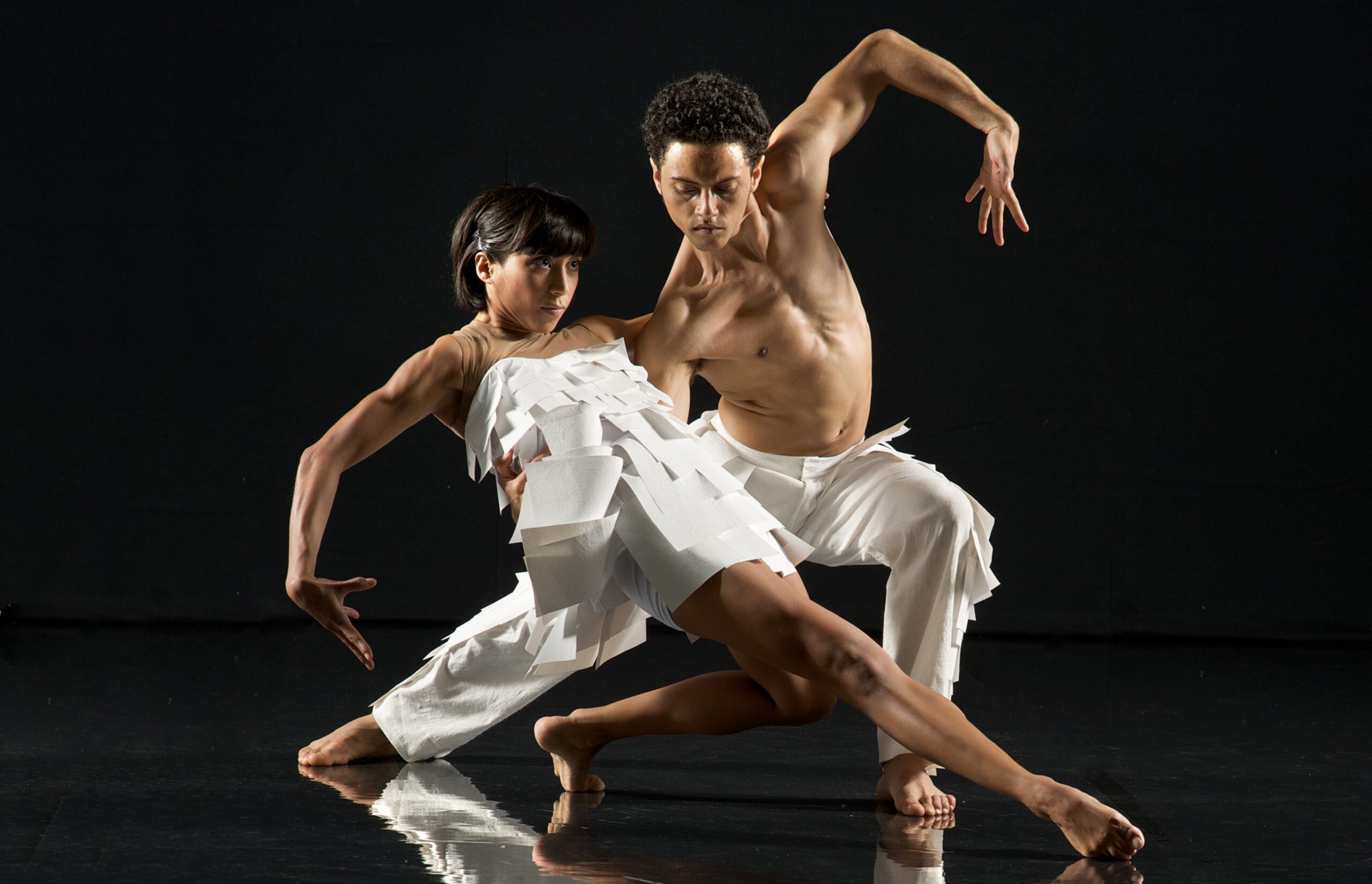
Rambert Dance Company’s Estela Merlos and Dane Hurst in Labyrinth of Love
Photo: Chris Nash
For the love of dance
Joan Duda, a guest speaker at DanceEast’s rural retreat held in January, discusses the importance of a dancer’s ‘quality motivation’ and empowerment.
I was invited to take part at DanceEast’s rural retreat as someone who has been an active researcher in the dance sciences and a dance psychology consultant and educator. I joined the discourse as an applied practitioner who has worked extensively with vocational and professional dancers (and instructors and choreographers) representing many different dance genres. As such, I have witnessed first hand the good, the bad and the ugly that can characterise this artform. My passion, as a researcher and practitioner, is to set the stage for more of the good and to contribute to eradicating the prospect of participation in ‘debilitating dance’ for any dancer at any level.
I had the pleasure and privilege to interact with 27 artistic directors from leading dance companies from around the world. It was impressive to witness these leaders share examples of good practice and satisfying successes as well as dancer experiences which went horribly wrong. So why have some of their strategies worked and what caused the negative outcomes?
It was clear to me that this was a group of talented and committed professionals who realise the commercial and artistic pressures placed on directors today, and yet want to have dance in a ‘better place’ and the lives of their dancers considerably improved. They want to see their dance companies thrive and not merely survive. But how can they effectively realise such aspirations?
I wanted to challenge this group of leading dance professionals. I wanted the discipline to progress to the next step in terms of the scientific bases of what they do. A pitch was made for more evidence-based practice in how we train dancers, encouraging them to develop as artists and as people, helping them prepare for their performances, and contributing to a long-term career that is both rewarding and health-conducive. I delivered a taster session of the Empowering Dance workshop that I have led the development on over the past 20 years. This theory and research-based programme highlights the role of the motivational climate created by dance leaders in terms of whether dancers are more or less likely to exhibit positive or maladaptive responses.
An empowering environment is one in which dancers … feel competent to handle the demands placed on them
I proposed that they move beyond a consideration of whether their dancers seem to be ‘motivated’ at the present time. There can be many reasons underlying such motivation (being given a major role in the next ballet, receiving a promotion, not wanting to let others down), and not all motives for dancing are constructive or productive. Rather, I suggested that we need to think about how we can encourage the quality of motivation over the long term. Dancers exhibit quality motivation when they dance because they love it and intrinsically want to dance. I illustrated leader behaviours and philosophies that are more conducive to personal growth, optimal performance, creativity and healthy, sustained engagement in those we lead. An empowering environment is one in which dancers, and others in the company, feel competent to handle the demands placed on them. In an empowering atmosphere company members feel they have a voice and choice. They feel their perspective is considered in what transpires and they are provided a rationale for decisions that need to be made or practices proposed. An empowering dance company also cares about all the constituents which make the whole. They feel valued and respected. There is an apparent and sincere concern about the collective and each individual’s good.
The dance leaders were ready for the principles of an empowering climate. They wanted to describe and debate specifics regarding what has worked (and why) and what challenges they faced. The conceptual framework, the scientific evidence gave a different platform for and energy to this conversation. Time was limited but recommendations and stories told by the artistic directors, as well as the guest speakers, began to make sense. A theoretically grounded approach does that for us. It makes connections. It helps us see the underlying structures. An informed dialogue has started and I hope…for the vibrant and most deserving future of dance…that it continues.
Joan Duda is Professor in the School of Sport and Exercise Sciences at the University of Birmingham.
http://www.bham.ac.uk
Join the Discussion
You must be logged in to post a comment.